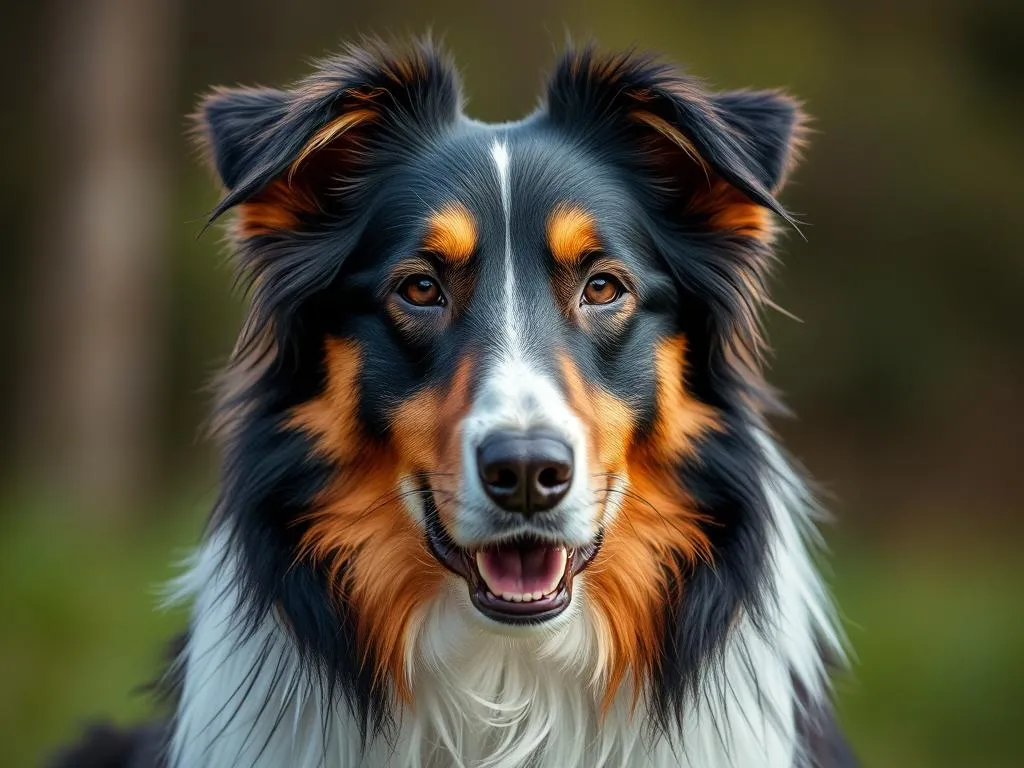
Introduction
When it comes to dog breeds, each type has its own unique characteristics, history, and appeal. Understanding these differences can greatly influence potential owners’ choices when selecting a furry companion. One breed that stands out is the collie. Known for their intelligence, loyalty, and striking appearances, collies have been beloved companions for generations. This article delves into the fascinating history, characteristics, and care requirements of this remarkable breed, providing a comprehensive guide for anyone considering adding a collie to their family.
History of Collies
Origins of the Collie
The collie breed has roots that trace back several centuries, primarily to Scotland and Northern England. Initially, these dogs were bred for herding sheep and cattle, showcasing their incredible intelligence and agility. The name “collie” is believed to have originated from the Scottish word “coll,” meaning “useful.” Early ancestors of the collie were likely various herding dogs that evolved into distinct breeds over time.
Evolution of the Breed
As the needs of farmers and shepherds changed, so did the role of the collie. By the late 19th century, these dogs began transitioning from essential working animals to cherished family pets. The popularity of collies surged in the early 20th century, thanks in part to the influence of pop culture. The character of Lassie, a heroic collie in books and films, further cemented the breed’s status as a beloved family companion. Today, the collie remains a popular choice for families, admired for their temperament and versatility.
Characteristics of Collies
Physical Traits
Collies come in two distinct coat types: rough and smooth. The rough collie boasts a long, flowing double coat, while the smooth collie features a sleek, short coat. In terms of size, collies typically weigh between 50 to 75 pounds and stand about 20 to 26 inches tall at the shoulder. Their elegant stature, with a long snout and expressive eyes, adds to their charm.
Color variations in collies are diverse, including sable, blue merle, and tri-color. Each color can present unique markings, making every collie visually distinct.
Temperament and Behavior
Collies are known for their gentle and friendly nature. They are intelligent, loyal, and eager to please, making them highly trainable. Their playful disposition allows them to interact well with children, making them ideal family pets. Moreover, collies tend to get along with other pets and are generally wary but not aggressive towards strangers. Their protective instincts combined with their loving nature make them excellent companions.
Types of Collies
Rough Collie
The rough collie is perhaps the most recognizable variant, thanks to its lush, long fur and majestic appearance. This type has historically been used for herding, showcasing their intelligence and agility in managing livestock. In modern times, rough collies often serve as family dogs and therapy animals, thanks to their gentle temperament and strong bond with humans.
Smooth Collie
While similar in many ways to the rough collie, the smooth collie has a shorter coat, which requires less grooming. This variant retains the same friendly and intelligent personality traits as its rough counterpart. Smooth collies are also known for their versatility, excelling in various activities, including obedience and agility competitions.
Other Variants
Beyond the standard collies, there are other breeds worth mentioning:
- Border Collie: Renowned for their herding skills, Border collies are highly intelligent and energetic. They require extensive exercise and mental stimulation, making them suitable for active owners.
- Bearded Collie: This breed is known for its shaggy coat and friendly demeanor. Bearded collies are affectionate and make excellent family pets, similar to their collie relatives.
Health and Care for Collies
Common Health Issues
Like all breeds, collies are prone to certain health concerns. Common issues include hip dysplasia, eye problems such as Collie Eye Anomaly, and autoimmune disorders. Regular veterinary check-ups are essential to monitor health and catch any potential issues early.
Nutrition and Diet
A balanced diet is crucial for a healthy collie. High-quality dog food that meets their nutritional needs is recommended. Owners should ensure their collie receives adequate protein, fats, and carbohydrates, tailored to their age, size, and activity level. Maintaining a healthy weight is vital, as obesity can lead to various health issues.
Grooming Requirements
Grooming needs differ between rough and smooth collies. Rough collies require regular brushing—ideally once a week—to prevent matting and reduce shedding. During the shedding season, more frequent brushing may be necessary. Smooth collies, on the other hand, require minimal grooming, with occasional brushing to keep their coat healthy.
Training and Socialization
Basic Training Techniques
Training and socialization are crucial for a well-adjusted collie. Early exposure to different environments, people, and other animals is essential. Positive reinforcement techniques, such as treats and praise, work best for training collies, as they respond well to encouragement.
Advanced Training Options
Given their intelligence, collies thrive in advanced training settings. They excel in obedience, agility, and even herding competitions. Engaging in these activities not only stimulates their minds but also enhances the bond between the dog and owner.
Living with a Collie
Ideal Living Environment
Collies adapt well to various living situations, but they thrive in homes with ample space to roam and play. While they can live in apartments, a house with a yard is preferable. Regular exercise is crucial to keep them healthy and happy.
Time Commitment and Lifestyle
Owning a collie requires a significant time commitment. Daily exercise routines, including walks or playtime, are essential to keep them physically and mentally stimulated. Additionally, regular grooming and training sessions should be factored into the owner’s schedule to maintain a well-cared-for and well-behaved dog.
FAQs about Collies
Are collies good family pets?
Yes, collies are excellent family pets. Their gentle nature, intelligence, and playful attitude make them well-suited for households with children. They tend to be protective and loving, forming strong bonds with family members.
How much exercise do collies need?
Collies require a moderate to high level of exercise. Daily walks, playtime, and opportunities for mental stimulation are essential. Aim for at least one hour of exercise each day to keep them happy and healthy.
What is the average lifespan of a collie?
The average lifespan of a collie ranges from 12 to 15 years, depending on various factors such as genetics, diet, and overall care. Regular veterinary visits and a healthy lifestyle can help maximize their lifespan.
Conclusion
The collie breed stands out for its intelligence, loyalty, and adaptability. Whether working as a herding dog or lounging on the couch with a family, collies bring joy and companionship to countless households. Prospective owners should consider their lifestyle and commitment to ensure that a collie is the right fit for their family. With proper care, training, and love, a collie can be a cherished member of the family for years to come.






